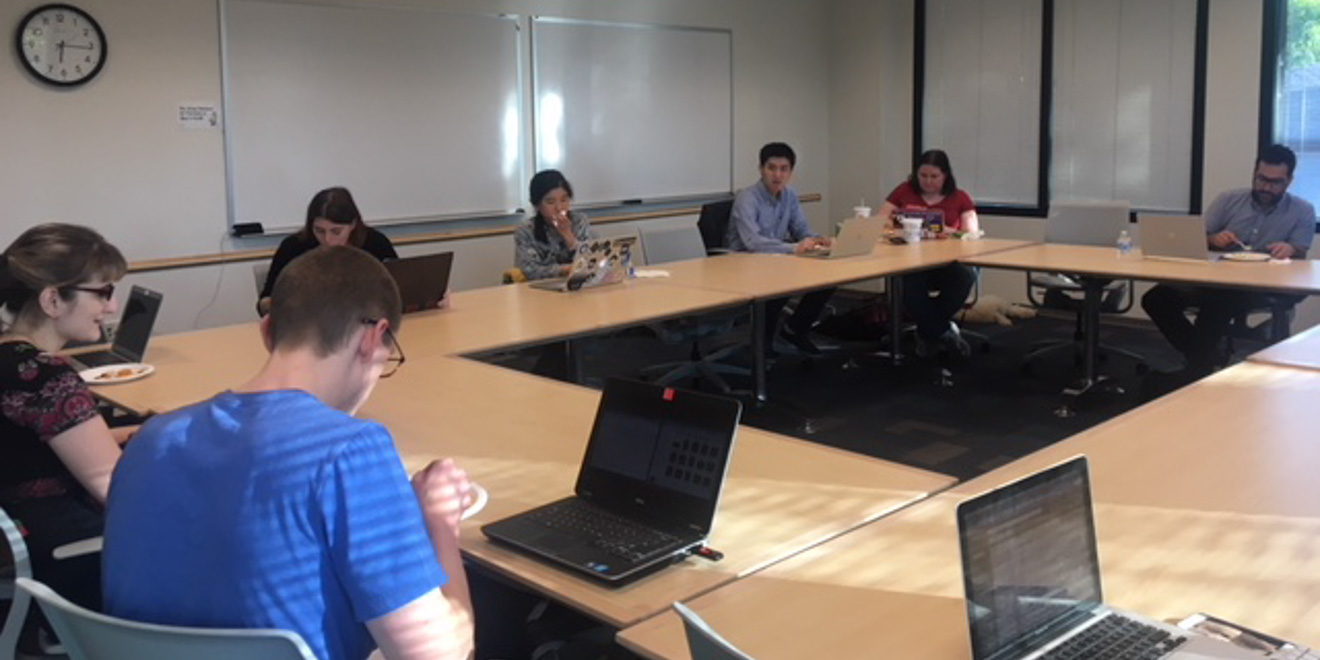On Wednesday evening, the Graduate Student Council (GSC) discussed a Joint Bill to Implement Student Will on Fossil Fuel Divestment and the General Use Permit (GUP). The Council also elected a new chairperson and two vice chairpeople.
“We are the representatives of the student body and their will, so it seems appropriate that we take a first step by having Stanford Student Enterprises (SSE) divest from any fossil fuel investments that they may have or they may seek to have in the future,” said Caleb Smith ’17 M.A. ’18.
Smith said that bill is consistent with the will of the student body, but that it is unclear what impact this bill would have.
“I’m not 100 percent sure what level of enforcement this bill would have — whether we and the undergraduates can direct SSE to make sure it has no fossil fuel investments in its investment portfolio, or whether this would, instead, be a direction to our SSE Board of Directors that they ought to use their positions to seek a divestment policy,” Smith said.
The bill has no explicit timeline for when divestment is expected to begin and complete, but there are instructions for a report back six months after the bill has been enacted.
“I think this [bill] is primarily intended to explain to the student body at large that ‘we’ve heard you loud and clear and we are making sure we are trying to implement your will here,’” Smith added.
The GSC will continue to review the bill before its meeting next week.
In addition, the GSC also deliberated the GUP, whose final proposal is predicted to be heard in fall or winter 2018. The GUP is Stanford’s plan for development for approximately the next 20 years and it addresses plans for additional spaces for housing, classrooms and lab space. In addition, the GUP focuses on Stanford’s ability to compensate, retain and maintain the high quality of Stanford’s staff members.
The GSC discussed a bill detailing concerns about housing segments, arguing that Stanford has not made appropriate progress in developing affordable housing. The resolution urges the University to address these concerns and to report to the undergraduate and graduate legislative bodies.
Melanie Malinas, a fourth-year graduate student in biophysics and Gabriela Badica, a Ph.D. student in Iberian and Latin cultures and GSC Social Chair expressed concerns in the bill’s language and requested to edit it or add suggestions.
“I think it’s dangerous for us to say that we don’t support the GUP…because I really don’t want to lose the 900 spaces for graduate housing that the GUP provides,” Badica said.
Smith, who presented the bill, stated that the bill was open for changes in language.
“We don’t want to see the GUP rejected; we wish to see it amended to include additional housing,” he said.
Badica also reported that there were 1100 attendees in total, and that one transport occurred at last Friday’s Grad Formal.
“We had one transport, which I think is one too many…we’ve changed our event to move it from just being alcohol-[centered] to more diverse [activities] — so that there are more things to do,” said Badica.
At the end of the meeting, the GSC voted in new co-chairs Amy Tarangelo, a fourth-year Ph.D student in cancer biology and Yiqing Ding, a second-year M.S. student in aeronautics and astronautics. Additionally, the GSC selected Ricardo Peterson, a third-year Ph.D student in electrical engineering, as its new secretary.
The GSC also inducted Malinas and Abisola Kusimo, a Ph.D. student in mechanical engineering, into its funding committee. Badica and Rui Liu, a third-year Ph.D. student in civil and environmental engineering, were selected to join the GSC social committee.
Next week, the GSC plans to discuss its operating budget in a closed meeting due to a scheduled discussion on proprietary knowledge about SSE operations. GSC members are also set to elect a new parliamentarian Diversity and Advocacy Committee liaison, as well as other positions in the forthcoming meeting.
Contact Karen Kurosawa at karen16 ‘at’ stanford.edu.
